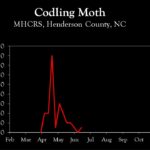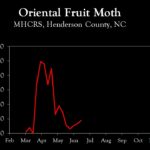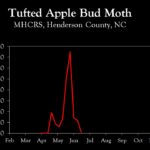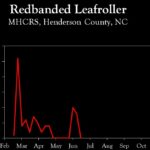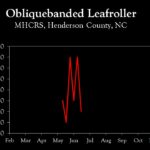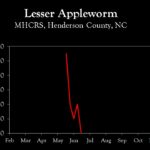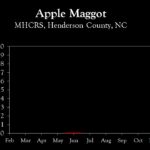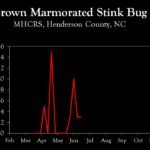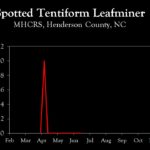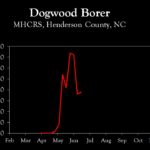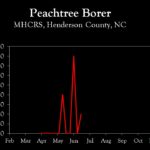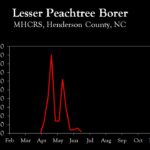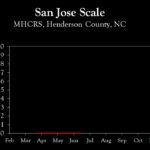WNC Orchard Insect Pest Populations – June 21, 2023
go.ncsu.edu/readext?942041
en Español / em Português
El inglés es el idioma de control de esta página. En la medida en que haya algún conflicto entre la traducción al inglés y la traducción, el inglés prevalece.
Al hacer clic en el enlace de traducción se activa un servicio de traducción gratuito para convertir la página al español. Al igual que con cualquier traducción por Internet, la conversión no es sensible al contexto y puede que no traduzca el texto en su significado original. NC State Extension no garantiza la exactitud del texto traducido. Por favor, tenga en cuenta que algunas aplicaciones y/o servicios pueden no funcionar como se espera cuando se traducen.
Português
Inglês é o idioma de controle desta página. Na medida que haja algum conflito entre o texto original em Inglês e a tradução, o Inglês prevalece.
Ao clicar no link de tradução, um serviço gratuito de tradução será ativado para converter a página para o Português. Como em qualquer tradução pela internet, a conversão não é sensivel ao contexto e pode não ocorrer a tradução para o significado orginal. O serviço de Extensão da Carolina do Norte (NC State Extension) não garante a exatidão do texto traduzido. Por favor, observe que algumas funções ou serviços podem não funcionar como esperado após a tradução.
English
English is the controlling language of this page. To the extent there is any conflict between the English text and the translation, English controls.
Clicking on the translation link activates a free translation service to convert the page to Spanish. As with any Internet translation, the conversion is not context-sensitive and may not translate the text to its original meaning. NC State Extension does not guarantee the accuracy of the translated text. Please note that some applications and/or services may not function as expected when translated.
Collapse ▲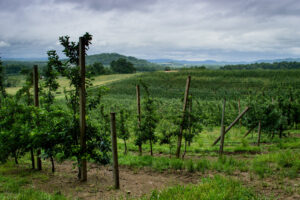 Across the region, we are in a period where the three major direct pests (codling moth, oriental fruit moth and tufted apple bud moth) pose little threat of damage to apples. This assumes that an insecticide effective against TABM has been applied in the past 10 (Henderson County and similar elevations) to 17 days (Cleveland County and similar elevations).
Across the region, we are in a period where the three major direct pests (codling moth, oriental fruit moth and tufted apple bud moth) pose little threat of damage to apples. This assumes that an insecticide effective against TABM has been applied in the past 10 (Henderson County and similar elevations) to 17 days (Cleveland County and similar elevations).
As mentioned in last week’s update, secondary pests that can be controlled using curative sprays, including green apple aphid, potato leafhopper, Japanese beetle, and European red mite are most common at this time. However, the cool and wet weather over the next few days will likely impede population growth of these pests.
Learn more about southeastern apple insect pests at the Apple Insect Management page.
2023 Average Weekly Trap Captures
| HENDERSON COUNTY | |||
| Insects per trap | |||
| June 5 | June 12 | June 19 | |
| Codling moth | 0.5 | 0.0 | 0.5 |
| Oriental fruit moth | 10.5 | 13.5 | 17.5 |
| Tufted apple bud moth | 14.0 | 12.0 | 1.0 |
| Redbanded leafroller | 10.0 | 8.0 | 0.0 |
| Obliquebanded leafroller | 3.0 | 7.0 | 2.0 |
| Lesser appleworm | 2.0 | 4.0 | 0.0 |
| Apple maggot (abandoned and research orchards) | 0.0 | 0.0 | 0.0 |
| Brown marmorated stink bug (commercial) | – | – | – |
| Brown marmorated stink bug (unsprayed) | 1.0 | 0.3 | 0.3 |
| Spotted tentiform leafminer | 0.0 | 0.0 | 0.0 |
| Dogwood borer | 36.0 | 18.0 | 19.0 |
| Peachtree borer | 8.0 | 0.0 | 2.0 |
| Lesser peachtree borer | 2.0 | 3.0 | 1.0 |
| San Jose scale | 0.0 | 0.0 | 0.0 |
*Note that these averages illustrate only the timing of insect emergence and fluctuations in populations, and are not representative of population levels in any given orchard. The only way to have an accurate assessment of an individual orchard’s populations is to set up traps in that orchard.
2023 Accumulated Degree Days
| HENDERSON COUNTY | ||||
| June 6 | June 12 | June 19 | ||
| Codling moth (Biofix: April 7) | 623 | 716 | 829 | |
| Oriental fruit moth (Biofix: March 24) | 1050 | 1176 | 1323 | |
| Tufted apple bud moth (Biofix: April 21) | 697 | 823 | 970 | |



